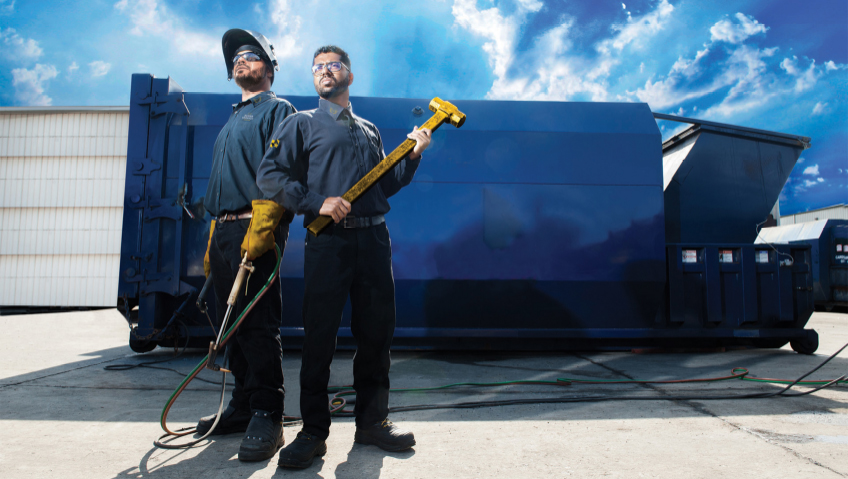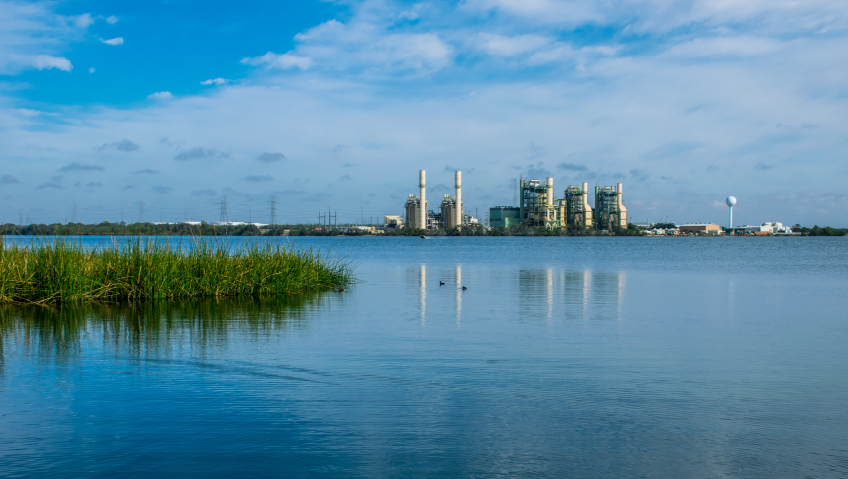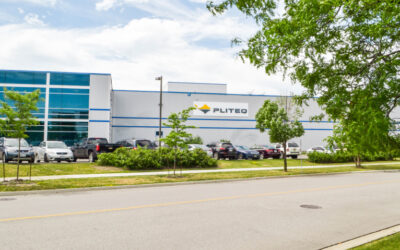If there is a secret to the success and longevity of Metro Compactor Service, Inc., it is that the family-run firm offers top-of-the-line waste and recycling equipment as well as ‘Super Service.’
Super Service is the term the company uses to describe its all-out commitment to customer care. With headquarters in Ontario in the Toronto-area, an office in Vancouver, British Columbia, and a large service fleet, Metro can repair and maintain equipment nationwide, even in remote locales. It also boasts a vast inventory of spare parts and a cutting-edge waste management monitoring solution that saves clients’ money while enhancing sustainability.
“We’re a service-first company. We understand the equipment; we understand value. We believe in selling equipment that lasts longer,” says President and CEO Danny Mauti, whose parents founded the firm in the late 1970s.
Mauti is President and CEO of the Metro Group of Companies which includes a range of waste and recycling equipment businesses. The division featuring Metro Compactor Service, Wilkinson Chutes, and the iSMART solution team has around 140 employees in total, roughly the same number as this time last year.
Its products include compactors, containers, balers, bin tugs (devices for moving large garbage containers), augers, and other gear needed for waste and recycling collection. At present, Metro is Canada’s leading distributor of products from the Marathon Equipment Company. Based in Vernon, Alabama, Marathon specializes in recycling and waste compaction systems. Metro Compactor Service stocks products from other firms too and manufacturers its own containers and compactors for residential markets.
“We believe that Marathon makes a really quality product, so we tend to lead with them, but if there’s an appetite for a customer to have a different type of equipment, we can sell them that equipment,” states Sales Director Mike Smitko. “For equipment, we cover pretty much everything someone would need.”
The company will also do installations if requested. Depending on the location, installation is handled by either its staff or subcontractors.
It has clients in the residential, municipal, commercial, industrial, waste recycling, and institutional sectors. Of these markets, the commercial and residential sectors bring in the most revenue, according to Mauti.
In addition to equipment, Metro offers a pioneering waste management solution. Once connected to waste management equipment like on compactors, balers, and augers, the iSMART system records data which is then relayed to company offices over an Internet of things (IoT) network.
iSMART can gauge how full a waste collection product is by taking internal PSI (pounds per square inch) pressure readings. Once the waste has reached a pre-determined fullness level, a message is sent to alert a hauler which will then remove the garbage.
In the past, garbage haulers typically stuck to a rigid schedule, only removing refuse on specific days, regardless of how much waste or how little had accumulated. Using iSMART, haulers only arrive when their services are required. This system enhances efficiency, lowers costs, and ensures that waste containment units are not overflowing, which is a major health and safety hazard.
“What the technology does, it streamlines the [waste removal] process and addresses people’s sustainability initiatives if they’re looking to reduce their carbon footprint. Overall, it reduces costs out of their business,” Smitko explains.
The system can also be used to log information in databases and send alerts to Metro if an issue is detected. Metro and the client can then resolve the issue before it becomes a problem, minimizing downtime.
“We’re able to remotely diagnosis certain issues going on with compactors,” says Mauti. “We’re able to use the technology to help avoid service calls, make sure things are running properly, and to maximize the fullness of the equipment, reduce the carbon footprint, reduce the number of service calls. We’re able to repair certain things from our desks and make sure the right technicians are going out to the sites.”
The solution was developed in-house from existing technology. While Metro Compactor Service does not sell or install waste and recycling equipment in the United States at present, it does offer iSMART to American clients and continues to innovate and work on ways to improve the technology.
As part of its commitment to customer-service, the company recently restructured its internal operations. On April 1, the service and repair departments at Metro Compactor and sister company Wilkinson Chutes Canada were combined.
The goal is to become more of a “one-stop-shop for our customers,” explains Mauti.
Wilkinson, founded over a century ago, describes itself as “North America’s first chute manufacturer.” The firm manufactures garbage, recycling, and linen chute systems used for disposal by clients in the healthcare, hotel, residential, and mixed-use markets. It designs and constructs its own products, does retrofits, and provides service and support duties. Metro acquired the Canadian rights to Wilkinson Chutes Canada in the early 1990s.
Blending the two departments together “adds more value for our residential customers. Instead of having to deal with two organizations, it streamlines the process. We can look at their entire waste system. It made sense to tie the chutes in with the actual equipment on-site that Metro historically serviced. Now we’re more efficient and have more reach,” notes Smitko.
That reach extends nationwide; the company will service its equipment virtually anywhere in Canada. As with installation, it will use in-house technicians or experts from trusted sub-contractors for servicing depending on location, he explains.
Metro’s wide geographic reach and established network of subcontractors is one reason why some of Canada’s largest organizations are clients.
All customers, regardless of size, benefit from the Super Service initiative launched roughly two years ago to formalize core principles that infuse the company’s corporate culture. These include: “being proactive, which our technology kind of speaks to; being ahead of the curve with our predictive preventative maintenance; giving insights [to clients] about potential issues, and providing them peace of mind,” says Smitko.
Like companies everywhere, Metro Compactor Service had to cope with the effects of the COVID-19 virus last year. It quickly introduced all necessary government health measures. Some staff members were sent home to work remotely, while those who stayed in the offices were given personal protective equipment (PPE). About half of the employees are still working at home, says Mauti. COVID initially hurt business, but “bounced back just fine,” he adds.
That is good news for a family firm originally founded in 1978 by Danny’s parents. Metro Compactor Service remains family-run today, with Danny’s brother Tommy working for the company. The plan is to keep the company family-owned for the time being.
From its earliest days, Metro Compactor established a reputation for excellence. Thanks to this reputation, the company doesn’t have to do much marketing to attract new clients. It has plenty of repeat, long-term customers as evidence of its work ethic, skills, and products.
“We don’t have to spend a lot of money on marketing,” says Mauti. “Most of our relationships are based on [our] years of existence.”
Metro Compactor Service has always maintained a consistent vision and avoided the temptation of expanding into fields it isn’t familiar with. The focus has “always been about service first. Servicing the equipment has been our bread and butter,” says Mauti.
“We want people who are humble and driven, have a professional attitude and are hard workers,” he says. He says that finding new people to replace workers approaching retirement age is the biggest non-COVID-related challenge facing the firm.
Metro’s mission for the next few years is straightforward. “Our goals are to grow North America-wide and use our technology to be able to supply or service contractors across North America better than anybody,” says Mauti.
“I think the expansion would start in Canada first. With our national accounts, a lot of these customers are in the same geographical area. If we have a pocket in say Calgary or Edmonton of customers, does it make sense to be subcontracting or does it make sense for us to have a location there and start self-performing? On the technology side in the U.S., it’s such a large market, it’s hard not to think that in the not-too-distant future we would want to have some presence down there,” Smitko agrees.
While Mauti obviously wants the company to be successful, Metro Compactor Service is not just about profits and the bottom line. The company strongly supports sustainability efforts which ultimately benefit the environment.
“Our organization is completely focused on a better tomorrow,” he states.













